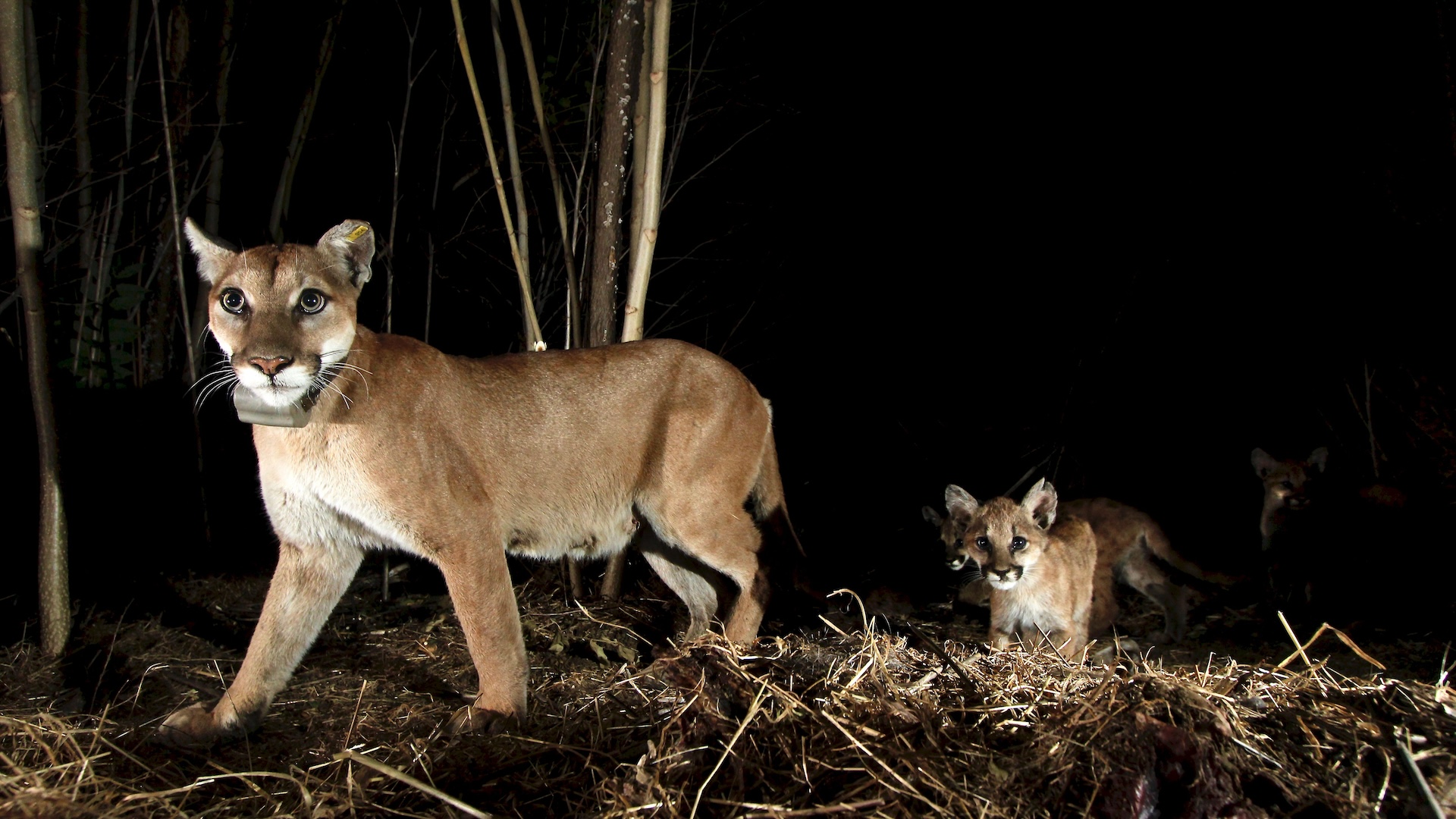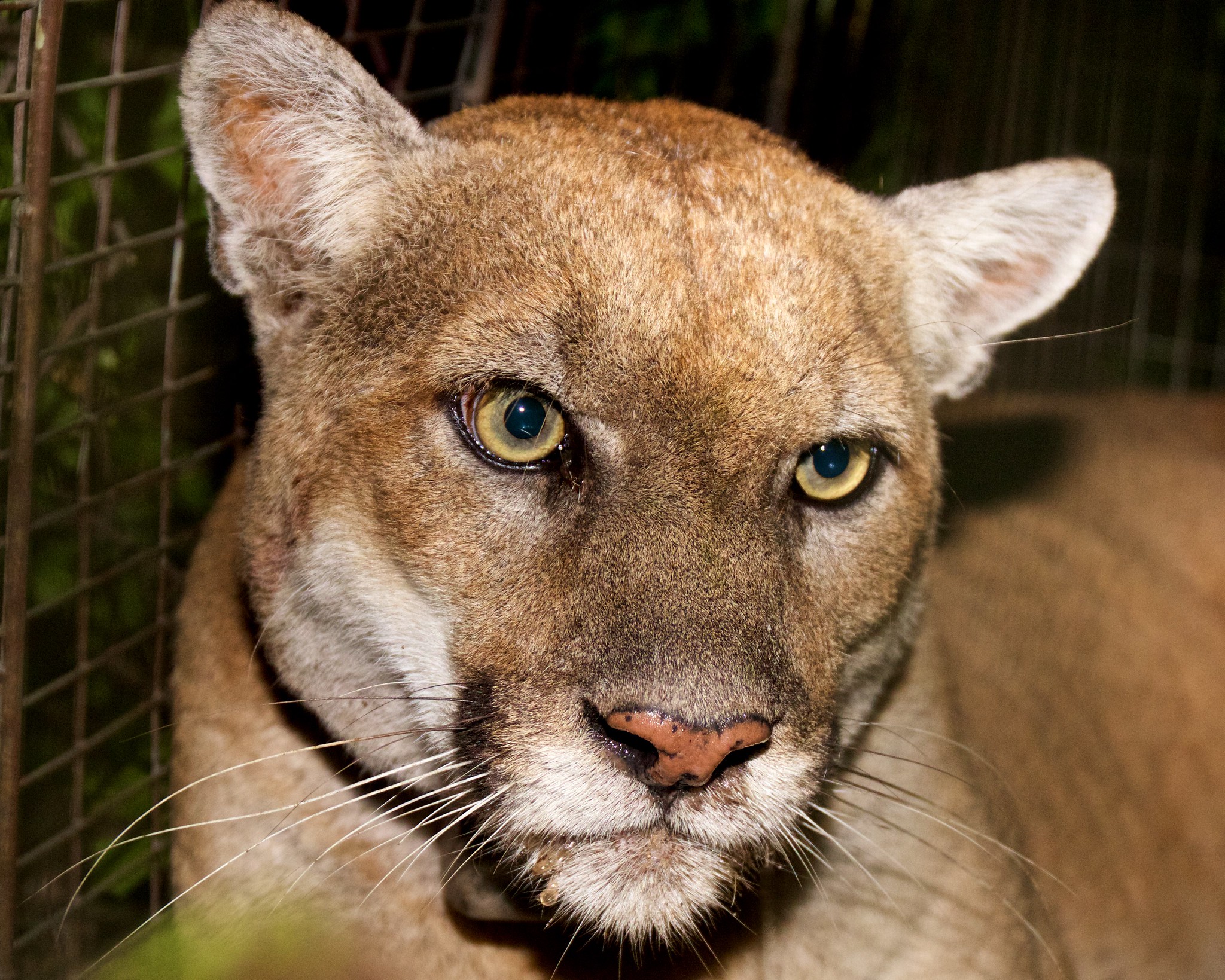Mountain lions in Los Angeles are becoming nocturnal to avoid humans
The mountain lions of Greater Los Angeles are becoming more active at night to cope with humans hiking, cycling and jogging in their habitat.

Mountain lions are prowling Greater Los Angeles at night to avoid humans exercising on their mountains, a new study finds.
The human population of Greater Los Angeles is increasingly using mountain lion (Puma concolor) territory for recreational activities such as hiking, running and cycling. That puts the mountain lions in a tough spot — so they're changing their behavior.
Mountain lions, also known as pumas or cougars, are naturally most active during dusk and dawn, but in places where humans engage in recreational activities, the cats now favor nighttime hours, according to the study, published Nov. 15 in the journal Biological Conservation.
"This flexibility we see in mountain lion activity is what allows us to share these natural areas together," study lead author Ellie Bolas, a doctoral candidate studying mountain lions and mule deer at the University of California, Davis, said in a statement. "Mountain lions are doing the work so that coexistence can happen."
Related: 1st of its kind footage shows guard dogs saving sheep from puma attack on a pitch black mountain
Bolas and her colleagues fitted GPS collars to 22 mountain lions living in and around the Santa Monica Mountains between 2011 and 2018. They then compared mountain lions' activity with human recreational activity registered on the online platform Strava, which enables users to track their physical exercise.
The researchers found that mountain lions living in areas with increased recreational activity shifted the timing of their activities from dawn to night — when human activity was at its lowest, according to the study. This suggests they adapted to avoid people.
Get the world’s most fascinating discoveries delivered straight to your inbox.

These findings are consistent with previous studies that suggest mammals across the world are becoming more nocturnal in response to human activities, and that predators like mountain lions will go out of their way to avoid humans.
A 2019 study published in the journal Ecology Letters found that the sound of humans talking was enough to scare away mountain lions and reduce their activity — to the point that our voices had a similar effect to removing the predators from the ecosystem altogether. Humans have historically persecuted mountain lions, so this fear of our species is well-earned.
Today, mountain lions living around Los Angeles face many threats, including busy roads, wildfires, rodenticide exposure, low genetic diversity and fragmented habitat, according to the statement. The study authors noted that our recreational activities are another potential stressor for the cats.
"Even something as innocuous as recreation can add to these other stressors we're bringing into their lives, potentially by altering the amount of energy they have to expend for hunting and other needs," Bolas said. "But we can feel a sense of optimism that they are flexible in the timing of their activity. Coexistence is happening, and it's in large part because of what mountain lions are doing."

Patrick Pester is the trending news writer at Live Science. His work has appeared on other science websites, such as BBC Science Focus and Scientific American. Patrick retrained as a journalist after spending his early career working in zoos and wildlife conservation. He was awarded the Master's Excellence Scholarship to study at Cardiff University where he completed a master's degree in international journalism. He also has a second master's degree in biodiversity, evolution and conservation in action from Middlesex University London. When he isn't writing news, Patrick investigates the sale of human remains.


